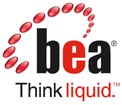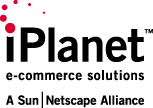
Java is a high-level, class-based, object-oriented programming language that is designed to have as few implementation dependencies as possible. It is a general-purpose programming language intended to let programmers write once, run anywhere (WORA), meaning that compiled Java code can run on all platforms that support Java without the need to recompile. Java applications are typically compiled to bytecode that can run on any Java virtual machine (JVM) regardless of the underlying computer architecture. The syntax of Java is similar to C and C++, but has fewer low-level facilities than either of them. The Java runtime provides dynamic capabilities that are typically not available in traditional compiled languages. As of 2019, Java was one of the most popular programming languages in use according to GitHub, particularly for client–server web applications, with a reported 9 million developers.

Sun Microsystems, Inc. was an American technology company that sold computers, computer components, software, and information technology services and created the Java programming language, the Solaris operating system, ZFS, the Network File System (NFS), VirtualBox, and SPARC microprocessors. Sun contributed significantly to the evolution of several key computing technologies, among them Unix, RISC processors, thin client computing, and virtualized computing. Sun was founded on February 24, 1982. At its height, the Sun headquarters were in Santa Clara, California, on the former west campus of the Agnews Developmental Center.
The Jakarta Messaging API is a Java application programming interface (API) for message-oriented middleware. It provides generic messaging models, able to handle the producer–consumer problem, that can be used to facilitate the sending and receiving of messages between software systems. Jakarta Messaging is a part of Jakarta EE and was originally defined by a specification developed at Sun Microsystems before being guided by the Java Community Process.

Jakarta EE, formerly Java Platform, Enterprise Edition and Java 2 Platform, Enterprise Edition (J2EE), is a set of specifications, extending Java SE with specifications for enterprise features such as distributed computing and web services. Jakarta EE applications are run on reference runtimes, that can be microservices or application servers, which handle transactions, security, scalability, concurrency and management of the components it is deploying.
In computing, Open Database Connectivity (ODBC) is a standard application programming interface (API) for accessing database management systems (DBMS). The designers of ODBC aimed to make it independent of database systems and operating systems. An application written using ODBC can be ported to other platforms, both on the client and server side, with few changes to the data access code.
In computing, a directory service or name service maps the names of network resources to their respective network addresses. It is a shared information infrastructure for locating, managing, administering and organizing everyday items and network resources, which can include volumes, folders, files, printers, users, groups, devices, telephone numbers and other objects. A directory service is a critical component of a network operating system. A directory server or name server is a server which provides such a service. Each resource on the network is considered an object by the directory server. Information about a particular resource is stored as a collection of attributes associated with that resource or object.

BEA Systems, Inc. was a company that specialized in enterprise infrastructure software products which was wholly acquired by Oracle Corporation on April 29, 2008.

iPlanet was a product brand that was used jointly by Sun Microsystems and Netscape Communications Corporation when delivering software and services as part of a non-exclusive cross marketing deal that was also known as "A Sun|Netscape Alliance".
In software, a data access object (DAO) is a pattern that provides an abstract interface to some type of database or other persistence mechanism. By mapping application calls to the persistence layer, the DAO provides some specific data operations without exposing details of the database. This isolation supports the single responsibility principle. It separates what data access the application needs, in terms of domain-specific objects and data types, from how these needs can be satisfied with a specific DBMS, database schema, etc..
A JDBC driver is a software component enabling a Java application to interact with a database. JDBC drivers are analogous to ODBC drivers, ADO.NET data providers, and OLE DB providers.

GlassFish is an open-source Jakarta EE platform application server project started by Sun Microsystems, then sponsored by Oracle Corporation, and now living at the Eclipse Foundation and supported by Payara, Oracle and Red Hat. The supported version under Oracle was called Oracle GlassFish Server. GlassFish is free software and was initially dual-licensed under two free software licences: the Common Development and Distribution License (CDDL) and the GNU General Public License (GPL) with the Classpath exception. After having been transferred to Eclipse, GlassFish remained dual-licensed, but the CDDL license was replaced by the Eclipse Public License (EPL).

Java is a set of computer software and specifications developed by James Gosling at Sun Microsystems, which was later acquired by the Oracle Corporation, that provides a system for developing application software and deploying it in a cross-platform computing environment. Java is used in a wide variety of computing platforms from embedded devices and mobile phones to enterprise servers and supercomputers. Java applets, which are less common than standalone Java applications, were commonly run in secure, sandboxed environments to provide many features of native applications through being embedded in HTML pages.

Network Security Services (NSS) is a collection of cryptographic computer libraries designed to support cross-platform development of security-enabled client and server applications with optional support for hardware TLS/SSL acceleration on the server side and hardware smart cards on the client side. NSS provides a complete open-source implementation of cryptographic libraries supporting Transport Layer Security (TLS) / Secure Sockets Layer (SSL) and S/MIME. NSS releases prior to version 3.14 are tri-licensed under the Mozilla Public License 1.1, the GNU General Public License, and the GNU Lesser General Public License. Since release 3.14, NSS releases are licensed under GPL-compatible Mozilla Public License 2.0.
Netscape Web Server was an integrated software platform for developing and running transaction-oriented business applications on the web. It was developed originally by Kiva Software, which Netscape acquired in 1997.
The Softwell Maker is an environment development. Designer uses visual forms and reports (WYSIWYG), business rules, and visually representing other actions using flowcharts.
Oracle WebLogic Server is a Java EE application server currently developed by Oracle Corporation. Oracle acquired WebLogic Server when it purchased BEA Systems in 2008.
Java Database Connectivity (JDBC) is an application programming interface (API) for the programming language Java, which defines how a client may access a database. It is a Java-based data access technology used for Java database connectivity. It is part of the Java Standard Edition platform, from Oracle Corporation. It provides methods to query and update data in a database, and is oriented toward relational databases. A JDBC-to-ODBC bridge enables connections to any ODBC-accessible data source in the Java virtual machine (JVM) host environment.
Oracle iPlanet Web Server (OiWS) is a web server designed for medium and large business applications. Previous versions were known as Netscape Enterprise Server, iPlanet Web Server, Sun ONE Web Server, and Sun Java System Web Server.
An Internet operating system, or Internet OS, is any type of operating system designed to run all of its applications and services through an Internet client, generally a web browser. The advantages of such an OS would be that it would run on a thin client, allowing cheaper, more easily manageable computer systems; it would require all applications to be designed on cross-platform, open standards; and would not tie a user's applications, documents, and preferences to a single computer, but rather place them in the Internet cloud. The Internet OS has also been promoted as the perfect type of platform for software as a service.
Kiva Software was the leading provider and pioneer of internet application server software. Kiva Software released the industry's first application server in January 1996, offering companies a robust platform on which to develop and deploy transaction-oriented business applications on the Web. Kiva's customers included Bank of America, E-Trade, Travelocity, Internet Shopping Network, Hong Kong Telecom and Pacific Bell Internet.







